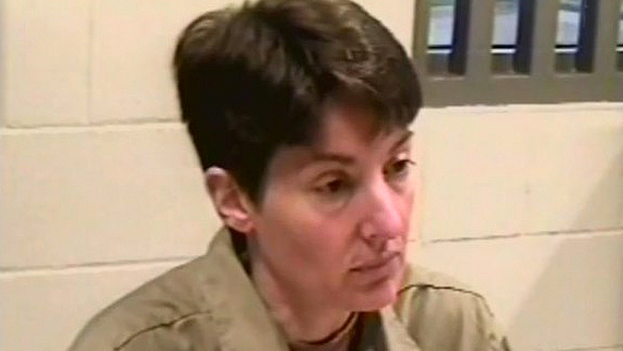
![]() 14ymedio, Carlos Alberto Montaner, Miami, 5 December 2021 — It is like the “never-ending story.” A circular nightmare.
14ymedio, Carlos Alberto Montaner, Miami, 5 December 2021 — It is like the “never-ending story.” A circular nightmare.
Havana, summer of 1959. I remember a person who was very sure that US President Ike Eisenhower, in the middle of the Cold War, “would never allow the consolidation of a Soviet base 90 miles off the coast of the United States.” The person was a veteran of that “forgotten war” in which more than thirty thousand Americans died.
The reasoning was impeccable. A few years earlier, between 1950 and 1953, during the presidency of Harry S. Truman, the US Armed Forces had gone to fight on the Korean peninsula, a poor and dusty country, thousands of miles away, supposedly under an order from the recently created United Nations. The real purpose was to prevent China – the Communist world – from having another victory and conquering another country.
However, on 1 January 2023, the Cuban government will begin the 63rd year of its uninterrupted stay in power, exercising its most stubborn “anti-Yankee” attitude, without “Uncle Sam” appearing to care at all.
Why this indifference to Havana and its tense hatred against “the Americans”? For different reasons, among them, the tireless work of Cuban intelligence.
Ana Belén Montes, a Puerto Rican, was the highest-ranking spy, but not the only one, planted by “the Cubans” in the United States Defense Intelligence Agency. Her first contacts with Havana occurred in 1984, 17 years before she was arrested and accused of espionage, ten days after 11 September 2001.
She was convicted and sentenced to 25 years in prison plus five years of close surveillance, although theoretically she will spend them in her home. Her two siblings – Tito and Lucy, male and female – work loyally for the FBI. Montes will soon be released from prison, but she would have left her perfidious work very well done.
Indeed. Ana Belén Montes became the main analyst on Cuban issues for that institution for a great number of years. Her job consisted of coordinating from the Pentagon the vision between the different intelligence sections on the Cuban revolution, but her secret mission, agreed to with Havana, was to minimize the risk to Cuban communism and convince Washington of the convenience of lifting the embargo against the Island.
Fidel Castro didn’t like the arrival of Gorbachev at the Kremlin (1985). He came to think that Gorbachev was a CIA agent. “He can’t be such an idiot,” he said back then. He prepared for the worst. He met with the Brazilian trade unionist Lula da Silva. Brazil was a giant country, and the leader of the metallurgists union could support him with the “Workers Party.” Fidel Castro convinced him to support the Sao Paulo Forum. It was a kind of ‘International’ of the Latin American left that included the most violent organizations, such as the FARC and 47 other groups, which met in Sao Paulo in July 1990.
Faced with Mikhail Gorbachev’s strategy of “liberating Russia from the weight of the Soviet Union,” Fidel, who never did the math, didn’t care that the USSR was ruined on the way. His goal was fighting and defeating the United States, his particular war since he confessed to his secretary and lover Celia Sánchez his leitmotif in a handwritten letter dated June 5, 1958, in the middle of the Sierra Maestra.
Gorbachev’s strategic vision was evident in two matters that were very important to Fidel: he was notified, very discreetly, that Moscow would not continue to pay for the presence of Cubans in Africa, and the USSR sent a message to the Sandinista Front that it would not continue financing the war against the “Contra.” Gorbachev urged them to go to free elections against Violeta Barrios de Chamorro, something that Fidel strongly discouraged.
It seemed that communism was collapsing, but the Cuban regime showed that perseverance pays great results, even when its objectives were not the same ones that the USSR advocated – ending private property.
In 1990-1991 it seemed that Latin America had returned to the fold of democracy and development. Chile had separated from Augusto Pinochet, but not from its commitment to the market. But it didn’t happen like that: in 1994 Fidel invited Hugo Chávez, an unknown Venezuelan coup leader who had just been released from prison and had less than 2% popular support. At the end of 1998 he was elected President, guided by the Cuban political operators, and the return of chaos began.
In 2006 Evo Morales was elected in Bolivia. In 2007, Daniel Ortega in Nicaragua and Rafael Correa in Ecuador. In 2019 many young Chileans rebelled against the market, destroying many symbols of their recent successes. At the end of 2021, Xiomara Castro de Zelaya was elected in Honduras. She will control the government; her husband, Daniel Ortega will take power.
As I said, it’s like “the never-ending story.” A circular nightmare. There is no remedy.
____________
COLLABORATE WITH OUR WORK: The 14ymedio team is committed to practicing serious journalism that reflects Cuba’s reality in all its depth. Thank you for joining us on this long journey. We invite you to continue supporting us by becoming a member of 14ymedio now. Together we can continue transforming journalism in Cuba.
